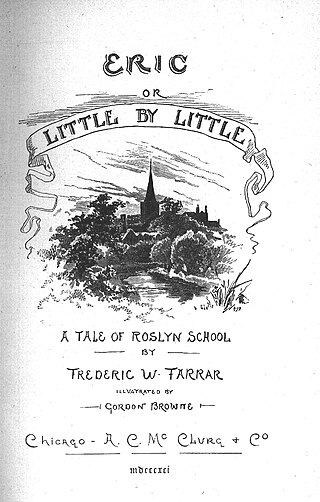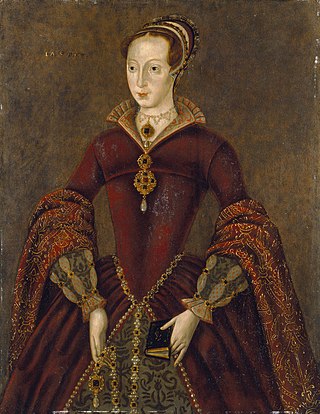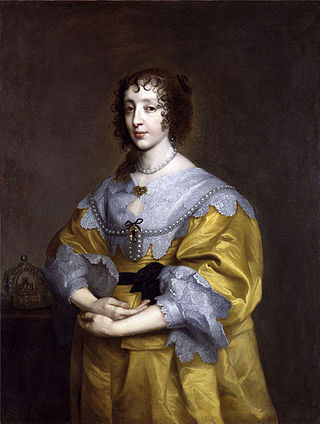
Charles is a masculine given name predominantly found in English and French speaking countries. It is from the French form Charles of the Proto-Germanic name ᚲᚨᚱᛁᛚᚨᛉ or *karilaz, whose meaning was "free man". The Old English descendant of this word was Ċearl or Ċeorl, as the name of King Cearl of Mercia, that disappeared after the Norman conquest of England.
Fredrik or Frederik is a masculine Germanic given name derived from the German name Friedrich or Friederich, from the Old High German fridu meaning "peace" and rîhhi meaning "ruler" or "power". It is the common form of Frederick in Norway, Finland and Sweden. The name means "peaceful ruler" The most common variant spelling of this name is Frederik which is used in Denmark, although the English spelling Frederick is more common than either. Fredrik replaced the Anglo-Saxon name Freodheric, and has been a rare first name in England since this time.

Laurentius is a Latin given name and surname that means "From Laurentum" . It is possible that the place name Laurentum is derived from the Latin laurus ("laurel"). People with the name include:

The given name Eric, Erich, Erikk, Erik, Erick, or Eirik is derived from the Old Norse name Eiríkr.

Catherine, also spelled Katherine and other variations, is a feminine given name. The name and its variants are popular in countries where large Christian populations exist, because of its associations with one of the earliest Christian saints, Catherine of Alexandria.
Henrik is a male given name of Germanic origin, primarily used in Scandinavia, Finland, Estonia, Hungary and Slovenia. In Poland, the name is spelt Henryk but pronounced similarly. Equivalents in other languages are Henry (English), Heiki (Estonian), Heikki (Finnish), Henryk (Polish), Hendrik, Heinrich (German), Enrico (Italian), Henri (French), Enrique (Spanish) and Henrique (Portuguese). It means 'Ruler of the home' or 'Lord of the house'.
Zechariah, with many variant forms and spellings such as Zachariah and Zacharias, is a theophoric masculine given name of Hebrew origin, meaning "God/YHWH remembers". It comes from the Hebrew root זכר, meaning to remember, and yah, one of the names of the God of Israel. Though Zechariah is the original transliteration of the name and used in the English translation of the Book of Zechariah, Zachariah, spelled with the letter A instead of the letter E, is more popular, with a common diminutive being Zach. Due to its religious significance, variants of the name exist in numerous languages, and it is also used as a monastic or papal name.

Matilda, also spelled Mathilda and Mathilde, is the English form of the Germanic female name Mahthildis, which derives from the Old High German "maht" and "hild".

Anna is a feminine given name, the Latin form of the Greek: Ἄννα and the Hebrew name Hannah, meaning "favour" or "grace" or "beautiful".

Jane is a feminine given name. It is the English form of Jehanne, the Old French feminine form of Iohannes, a Latin form of the Greek name Ἰωάννης (Iōannēs), which is ultimately derived from the Hebrew name יוֹחָנָן (Yochanan), a short form of the name יְהוֹחָנָן (Yehochanan), meaning "Yahweh is merciful".

Elizabeth is a feminine given name, a variation of the Hebrew name Elisheva (אֱלִישֶׁבַע), meaning "My God is an oath" or "My God is abundance", as rendered in the Septuagint.

Wilhelmina is a feminine given name, the Dutch, German and Yiddish form of Wilhelm or William, which is derived from the Germanic wil, meaning "will, desire" and helm, meaning "helmet, protection". Wilhelmina was ranked in the top 1000 most popular names for girls in the United States between 1900 and 1940 but is rarely used today. In many European countries, this name is once again very popular. Nicknames for Wilhelmina include, but are not restricted to, Minna, Mina, Mineke, Minnie, Willie, Willa, and Billie.

Henrietta is a feminine given name, derived from the male name Henry. The name is an English version of the French Henriette, a female form of Henri. A short version of the name is Harriet, which was considered the "spoken form" of Henrietta, much as Harry was considered the "spoken form" of Henry in medieval England.
August is both a given name and surname developed from the Latin, Augustus. Derived from the Latin word augere, meaning "to increase", Augustus had the meaning "esteemed" or "venerable" and was a title given to Roman emperors.

Andrew is the English form of the given name, common in many countries. The word is derived from the Greek: Ἀνδρέας, Andreas, itself related to Ancient Greek: ἀνήρ/ἀνδρός aner/andros, "man", thus meaning "manly" and, as consequence, "brave", "strong", "courageous", and "warrior". In the King James Bible, the Greek "Ἀνδρέας" is translated as Andrew.
Other language forms for the name John:
Antonia, Antónia, Antônia, or Antonía is a feminine given name and a surname. It is of Roman origin, used as the name of women of the Antonius family. Its meaning is "priceless", "praiseworthy" and "beautiful". Antonia is a Danish, Dutch, English, Faroese, Finnish, German, Italian, Norwegian, Polish, Romanian, Spanish, and Swedish name used in the United States, most of Canada, the Latin American states, Australia, New Zealand, Papua New Guinea, Indonesia, Philippines, Peninsular Malaysia, Singapore, India, Pakistan, Spain, Italy, Austria, Germany, Belgium, Netherlands, Poland, Romania, Bulgaria, Moldova, part of Serbia, Nordic countries, Greenland, Estonia, Republic of Karelia, South Africa, Namibia, Botswana, Zimbabwe, Zambia, Malawi, Tanzania, Uganda, Kenya, South Sudan, Sudan, and Ethiopia.
Christina or Cristina is a feminine given name. It is a simplified form of the Latin Christiana, and a feminine form of Christianus or a Latinized form of the Middle English Christin 'Christian'. Short forms include Chris and Tina. The name is ultimately derived from the original Greek form of the name, Χριστίνα.

Frederick is a masculine given name meaning "peaceful ruler". It is the English form of the German name Friedrich. Its meaning is derived from the Germanic word elements frid, or peace, and ric, meaning "ruler" or "power".

Susanna or Suzanna is a feminine first name, of Egyptian and Persian origin. It is the name of women in the Biblical books of Daniel and Luke. It is often spelled Susannah, although Susanna is the original spelling. It is derived from the Egyptian shoshen meaning "Iris flower". Arabic سوسن (Sausan) meaning "Iris". Persian سوسن (Susan) is the Persian spelling of this name and the Armenian: Susan, Shushan-Սուսան (Սուսաննա)= Շուշան is means a flower Iris. The spelling Susanna is used in Sweden, Italy, the Netherlands and Finland, as well as in the English-speaking world. The spelling Zuzana is used in Czech Republic and Slovakia and spelling Zsuzsanna in Hungary. In Poland it is Zuzanna. Even though very uncommon, it is also spelled Susana in Spain and Portugal, where it is more common.













